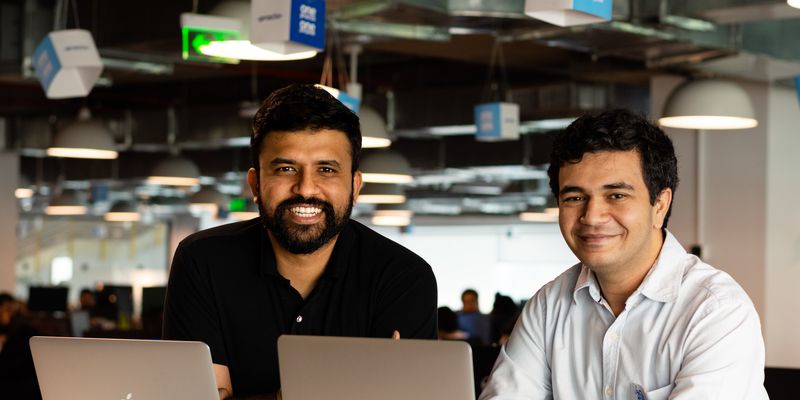TechSparks 2011 Round Table Pune, Insight Roundup
Tuesday June 14, 2011 , 5 min Read

This is the summarized description of Techsparks concluded on 11th of June which had 3 interesting sessions.
First session was your story sessions and the speakers were VSS Mani of Justdial, while Sanjay and Kailash Katkar spoke about Quickheal. Second session was conducted by Janakiram of Amazon web services and the third was a panel discussion. The panellist were • Probir Roy, founder of Paymate
• Sachin Kelkar, Head of Intel Software Partner Program
• Shailesh Lakhani, from Sequoia Capital
• Kris Nair, Partner, Opdrage Venture Partners
• VSS Mani, Founder of JustDial
Here's what they had to say.
Ideas are always stupid:
As a tech start-up when you conceive an innovative idea, most likely it would be ridiculed as a stupid idea since it's been never tried before and no one knows how it would transpire. VSS Mani narrates how throughout his journey, there have been naysayers. Justdial was his second attempt at entrepreneurship and how everyone discouraged him to restart a failed business.
Once when he had met a VC, who told them that he wasn’t interested in their existing business, but would fund them if they converted to a BPO. The VC was not willing to pursue their idea since it was not done before, he wanted a plain old tried and tested services model.
Similarly when Justdial decided to expand their business on the web, he had to resolve a lot of internal resistance from the management.
Lot of people termed his idea of taking forward his business to the North American shores, for people in US would never need a service like Justdial or they would be directly competing with Google. He was never bogged down and was focussed on execution of his ideas.

When brothers Sanjay and Kailash Katkar decided to launch their set of small software utilities as a full blown antivirus software, he was ridiculed. There were already 56 domestic companies in this space and around same number of international giants. There was no concept of buying software and customers believed that antivirus software should come free with the maintenance contract, piracy was the walk of life and there was no element of trust for desi software. They tackled all these challenges by constantly differentiating themselves from the competition through innovative solutions for problems at hand. The MNC backed antivirus simply deleted the virus affected files, while Quickheal cleaned the virus affected file which got thumbs up from their customers. They made their virus updates as small as possible so that their customers with dialup connection could easily stay updated.With persistent efforts their team built a network of channel partners, convinced their customers to buy software and won their loyalty with a good after sales support. Well at end of the day ideas are always stupid, you as an entrepreneur have turn them into a brilliant one.
How to kindle the fire:
As quotated by Mani “Don’t wait for a miracle to happen. Don’t wait for an angel to appear. Just focus on ensuring that your tomorrow is better than today. Focus on a small, core set of customers, and keep them happy. They will become your evangelists, they’ll get you more customers, and they’ll help you get investors.”
If you look at both the stories , Justdial and Quickheal they did exactly the same thing. Quickheal bootstrapped their business through computer maintenance services and kept their focus on helping their client's through a set of antivirus utilities. They never had a flashy business presentations for VCs, just a laser sharp focus on business. Well, Mani also narrated an incident which reiterated this fact with his first failed attempt at business. Back in 1989 he started “Askme”.
They borrowed lot of money, set up offices in best locality, hired best people, gave them best possible training in five star hotels and yet their business ran out of money in two years. Unless the interests of your early employees are aligned with the interests of the company there is no growth.
Venture capital :
Most fervent questions that came from the audience were for venture capital. If you do the maths and figure out the number of aspiring startups and the number of firms funded by VC till date in India, there is less than 1% chance for a startup to get funded by a VC firm.
Here's what typically what a VC would thinks about your idea.
1. Size of the potential market.
2. Credibility of the founders.
3. VCs operate within their domain of expertise and if your business happens to be within their domain of expertise you have some momentum going forward.
Usually if you were to start a business you would have already gauged the market and probable sources of funding, but what about your credibility? The only sureshot way is to build your business and demonstrate it. All the panellist agreed that bootstrapping is the best way to start business. Quickheal spent good three years doing computer maintenance to fund their antivirus development. Justdial eased the cash flow with client advances in their initial days.
Shailesh Lakhani from Sequoia Capital added that lots of people who ask for money don’t deserve it. At early stages, investment is not based on the idea, but on people who have the capability to execute an idea. Focus on doing the best with you already have. Angels and VCs are always there to hear your ideas, but don't expect funding unless you have the right amount of credibility.
Most of the successful companies around were bootstrapped. So forget the fancy stuff, focus on existing customers and keep them happy, build your business and investors would come calling.
- Chaitannya Mahatme










